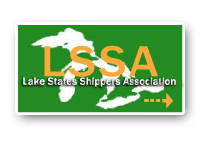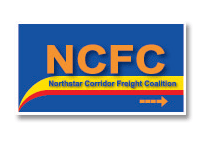CCFC Preliminary Antitrust Compliance Guidelines
CENTRAL CORRIDORS FREIGHT COMMITTEE
[draft jdv 050427]1
Preliminary Antitrust Compliance Guidelines
Preface.
1. The concepts set out in these Guidelines are generally stricter than what is required by law, in recognition of the fact that antitrust investigations and lawsuits, even if completely without merit, are often generated from mere appearances of impropriety, and are extraordinarily expensive, time-consuming, and disruptive.
2. Since these Guidelines are necessarily general in nature, consultation with an experienced antitrust counsel is recommended when analyzing specific issues and circumstances.
3. The term “member” includes members of CCFC of whatever type or class and any person or entity which participates in CCFC sponsored meeting or events, formal or informal.
Sensitive Competitive Information.
4. “Sensitive Competitive Information” includes, but are not necessarily limited to, information and data related to the following topics:
o Prices;
o Bids (or intent to bid);
o Discounts;
o Rebates;
o Profit margins;
o Credit standards;
o Inventory levels;
o Selection or classification of customers/suppliers;
o Terms of sale/purchase;
o Pricing plans;
o Markets, market and sourcing strategies or plans;
o Expansion and contraction plans;
o Facility closures;
o Downtime or turnaround plans;
o Changes in operating/consumption rates; and
o Costs.
Who Are One's “Competitors”?
5. One's competitors include persons and entities that purchase materials or services from the same or some of the same vendors or sell products or services to the same or some of the same customers.
6. Sensitive Competitive Information relate to any person or entity who is a competitor.
What Is A “Communication”?
7. A “communication” may be verbal, written, electronic, physical gesture or by any means that conveys information, data, thought, concept or anything of value.
Communications Between and Among CCFC Members.
8. Communications on Sensitive Competitive Information between or among CCFC members and participants who are competitors, in any formal or informal meeting and in any forum or in conjunction with any activity in which CCFC is involved, are prohibited.
9. CCFC members and participants shall be deemed to be competitors, except only upon a written finding by CCFC counsel, specific to the subject matter of the communication, that such members are not competitors.
10. Communications related to purchase-sale transactions between members-participants who are competitors and which involve services of CCFC may only occur in the context of a legitimate, good faith interest in buying or selling. This does not mean that every such communication must result in a purchase-sale. For example, company X may call supplier Y to explore a purchase, but learns that there is no product available or the price is not acceptable. However, the context must be that company X had a genuine, legitimate interest in buying. Assuming that the legitimate, good faith interest condition is met, the communication should be strictly limited to matters directly necessary to complete the transaction.
11. Communications related to product or services trades between members-participants who are competitors and which involve services of CCFC shall be limited to communications necessary to complete the particular trade. No communications of “competitive intelligence” such as, but not limited to, general market trends, supply or demand, pricing, or other Sensitive Competitive Information, shall occur. CCFC shall encourage such trading parties to price trades in ways that reduce or eliminate the need for regular discussions of market prices between the parties. To the extent that market information is necessarily conveyed by such trading, in order to limit the perceived competitive effect, CCFC shall encourage the trading parties to use personnel to negotiate or manage trades or purchases with competitors different from those involved in establishing prices or other terms to other customers or empower CCFC to act as confidential intermediary. Trades should be documented in a written contract or other writing, which should include a specified duration for the trade. CCFC shall encourage parties to review such trade contracts regularly to determine if there is a business justification to continue the trade relationship with a competitor.
Communications Between Individual Members and CCFC.
12. If may be useful to accomplishing the objectives and goals of CCFC that individual members and CCFC, on a regular and continuing basis, exchange communications including data and various types information classified as Sensitive Competitive Information.
13. Data and information classified as Sensitive Competitive Information included in such communications between individual members and CCFC shall be limited to that which is reasonably necessary to plan, carry-out, and account for CCFC's service functions. CCFC shall provide for review, to be reported in writing, of the templates and protocols used to communicate such data and information, by its own antitrust counsel and independent antitrust counsel of individual members who request the opportunity for such review or from whom CCFC may require such independent review. All additions and changes to such templates and protocols shall similarly reviewed in advance of implementation. All such templates and protocols shall be subject to similar antitrust review and written report, annually.
14. CCFC shall adopt standards and protocols, as necessary, to secure and maintain the confidentiality of data and information classified as Sensitive Competitive Information included in such communications between individual members and CCFC. Records of such communications shall be retained in a systematic manner, including provision for retrieval, and shall be subject to destruction only in a manner consistent with protocols approved by CCFC's legal counsel and upon notice to the members.
Communications By CCFC To the Membership.
15. Statistical and other informational reports provide substantial benefits to members by providing accurate and timely information that may be highly useful for sound business planning. At the same time, under some circumstances, such reporting programs can give rise to antitrust concerns. Accordingly, these Guidelines are designed to ensure that CCFC's statistical and other reporting does not give rise to antitrust issues or risks.
16. Statistical and other reports (or portions of reports) that meet the criteria set forth below need not be subjected to individual detailed review by antitrust legal counsel. Statistical and other reports that do not satisfy these Guidelines shall be subject to individual review in the same manner as communications including data or information classified as Sensitive Competitive Information.
17. No statistical or other reporting shall compromise the confidentiality of data or information communicated to CCFC by individual members and classified as Sensitive Competitive Information.
18. No antitrust concerns are presented by statistical reports wherein: (a) the data is at least three months old, (b) the data is aggregated from at least five reporting members, and (c) no member accounts for more than twenty-five percent of the aggregate data in any category. Where only some data categories in a report meet these requirements, the compliant data categories may be cleared without review, but non-compliant categories must receive legal review. Any report that provides data on a member-specific basis is inherently more likely to raise antitrust concerns and, therefore, must be carefully reviewed by counsel.
19. Statistical reports that provide information that is otherwise publicly available before the time of publication raise no antitrust concerns.
20. Statistical reports that provide data regarding consumption or demand at the customer level (as opposed to reporting member consumption of, or demand for, certain goods or services) raise no antitrust concerns. Hence, all reports related to member consumption of, or demand for, specific goods and services are subject to review by counsel unless these Guidelines are satisfied. There shall be no reports of individual member consumption of, or demand for, specific goods and services, except upon specific review and approval by antitrust counsel.
21. Statistical reports that provide aggregated data concerning members' use of goods or services are safe from an antitrust standpoint if the reporting members: (a) account for less than thirty-five percent of overall purchases of each product or service, and (b) the products or services with respect to which such reports are provided collectively account for less that twenty percent of the reporting members' cost of any product that they produce.
22. Statistical reports that provide data concerning imports or exports of particular products would raise no concerns to the extent that imports or exports account for less than twenty-five percent of U.S. Sales.
23. Communications by individual members to the CCFC's membership shall generally follow the same Guidelines governing communications by CCFC to the membership. Advance review by CCFC for antitrust compliance of such communications, if any, shall be encouraged.
CCFC Agendas, Minutes, Record Retention.
24. Meetings (including conference calls and electronic forums) of the membership or committees which include more than one member, shall be held pursuant to written agenda. Any additional topics for discussion or action shall be added to the written agenda. Minutes shall summarize discussion and report actions taken on each agenda item. Minutes and agenda of such meetings shall be retained in a systematic manner, including provision for retrieval, and shall be subject to destruction only in a manner consistent with protocols approved by CCFC's legal counsel and upon notice to the members.
25. Any listserve hosted by CCFC shall be assigned a moderator and shall be monitored for compliance with these Guidelines.
CCFC Antitrust Compliance Training and Monitoring.
26. CCFC shall provide a copy of these Guidelines, any updates and modifications of these Guidelines, and its report on the annual review of these Guidelines, to all members and each member representative who participates in meetings with other CCFC members or engages in communications with CCFC which involve Sensitive Competitive Information.
27. CCFC shall provide for invocation of these Guidelines at the outset of each meeting in which more than one member participates.
Duty to Report/Withdraw.
28. If any Sensitive Competitive Information offered in discussion, except as authorized by these Guidelines, CCFC and each member representative shall raise objection. If the person or persons involved fail to desist immediately or the behavior is repeated, CCFC and each member representative shall either from the meeting, and CCFC shall report details of the incident to CCFC's antitrust counsel. Unless counsel is satisfied that adequate corrective action has been taken and is documented in the incident report or if the behavior is repeated, CCFC counsel shall report the incident to legal counsel for the member or members represented by the person or persons involved in the incident.
Relationship to Noerr-Pennington Antitrust Immunity.
29. Many activities in which CCFC may engage to achieve its objectives and goals, either directly or in alliance with other stakeholders, are likely to involve petitioning or otherwise seeking action by governmental bodies, whether legislative, executive, administrative, or judicial.
30. Through the Noerr-Pennington antitrust immunity doctrine, the United States Supreme Court has recognized an antitrust exemption for such joint efforts to influence government, provided such efforts do not constitute a sham to cover an attempt to interfere directly with the business relationships of a competitor.
31. CCFC will not, and will counsel its members not, to rely upon Noerr-Pennington immunity, in place of these Guidelines, except upon a satisfactory opinion of antitrust counsel which addresses the specific facts and circumstances of the joint effort to be undertaken and sets forth antitrust guidelines to govern the specific undertaking.
1This draft is intended to guide pre-incorporation activity and to illustrate the type of antitrust guideline that will be put in place to guide ccfc activity. A refined set of Guidelines will be provided upon completion of the organization process including bylaws, business plan, and deployment of resources.




